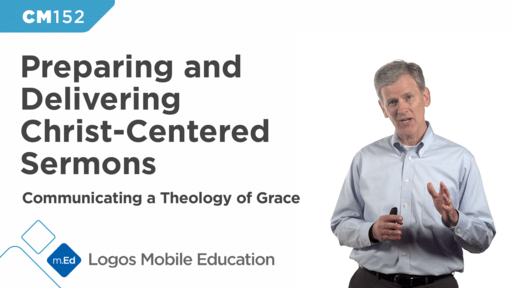CM152 Preparing and Delivering Christ-Centered Sermons II: Communicating a Theology of Grace
Sign in to rateIn this course, Dr. Bryan Chapell looks at the theology of grace that runs through Scripture and culminates in Jesus Christ. He explains how seeing the Bible through a redemptive lens can help you preach in a way that brings hope and motivates people to serve Christ.
The goal of preaching is to excavate the grace of God that is giving people hope, so that they are now motivated by love for Him rather than dread of Him or desire to satisfy Him who cannot be satisfied. If they understand that they’re already made right with Him by the grace of God, then they have hope. The hope gives them love, and in love for Him, they will seek to serve Him with greater energy, strength, effort, than anything else we can provide.
Dr. Chapell shows you how to use this redemptive approach in your sermons, particularly in sermon application. Building on these concepts, he then teaches you to preach through different biblical genres such as history and law, poetry and prophecy, and others.
